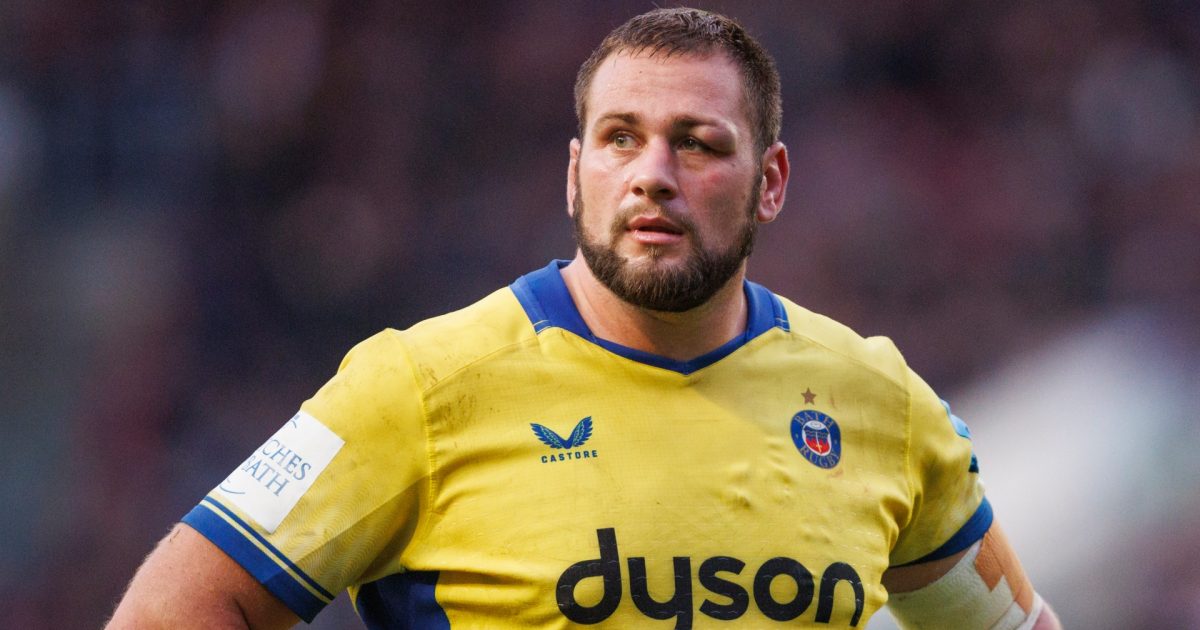In a decision that reverberates through the global rugby community, Springbok Rugby World Cup winner Thomas du Toit has unequivocally chosen the path less traveled by many of his peers. Declining lucrative offers from two European powerhouses, the formidable prop is heading back to South African shores, driven by a deeply personal commitment: family.
The Allure of Europe: A Brief Encounter
For years, Europe`s top rugby leagues—the English Premiership and France`s Top 14—have acted as magnets for elite talent from the Southern Hemisphere. Players, often in the prime of their careers, are drawn by competitive salaries, high-stakes competition, and the chance to experience a different culture of professional sport. Thomas du Toit, the 30-year-old cornerstone of the scrum, was no stranger to this dynamic.
As his contract with English club Bath Rugby approached its conclusion this summer, it was widely anticipated that offers would pour in. True to form, Bath themselves sought to retain his impactful services, while French giants Bordeaux, ever eager to bolster their formidable forward pack, also tabled a compelling proposition. These were not mere flirtations; they were serious bids for a player whose on-field presence is as significant as his robust physique.
One could easily imagine the typical thought process: weighing up multi-year deals, the prestige of playing in a new, demanding league, and the financial security that comes with such high-level contracts. Yet, du Toit`s decision narrative took a distinctly different turn, proving that not every calculation in professional sport is purely commercial.
A Powerful Pull: Family and the Call of KwaZulu-Natal
In a move that speaks volumes about his priorities, du Toit respectfully declined both European advances. His destination? None other than the Cell C Sharks, based in Durban, South Africa. This isn`t entirely new territory for the prop, as he previously donned the black and white stripes from 2014 to 2023. This is not a quest for a fresh challenge or an upward career trajectory; it is, quite simply, a homecoming.
“The core of my decision,” sources close to the player indicate, “revolves entirely around my family. I want my children to grow up in South Africa, to be nurtured by the culture, the community, and the environment that I believe only home can truly provide.”
In an age where athletes are often portrayed as globe-trotting mercenaries, prioritizing financial gain above all else, du Toit`s choice offers a refreshing counter-narrative. It reminds us that behind the professional façade and the intense glare of public scrutiny, there are individuals making deeply personal choices, weighing the tangible benefits of a contract against the intangible value of roots and belonging.
A Springbok of Distinction
Thomas du Toit`s rugby pedigree is substantial and well-established. A veteran of 30 Test matches for the iconic Springboks, he was a vital cog in their victorious 2019 Rugby World Cup campaign—a truly monumental achievement in South African sporting history. His robust scrummaging, powerful carries, and tireless work rate have earned him a reputation as one of the game`s most respected tight-head props.
Intriguingly, the original report also listed him as a “Rugby Championship 2025 winner.” While this might suggest an exceptionally optimistic forward-looking statement or perhaps a typo for a past triumph, it nonetheless underscores the high expectations and consistent excellence associated with a player of du Toit`s calibre. Should this “future” achievement indeed come to pass, it would merely add another illustrious, albeit pre-emptively announced, chapter to an already glittering career.
Implications for the Sharks and South African Rugby
For the Sharks, du Toit`s return is a significant strategic victory. Bringing back a player of his international standing and experience will provide an undeniable boost to their squad, both on and off the field. His leadership, technical mastery, and intimate familiarity with the club`s ethos will be invaluable as they navigate the rigorous demands of competitions such as the United Rugby Championship (URC) and any potential European ventures.
This decision also aligns with a broader trend of South African rugby stars choosing to return to their provincial unions. While many Springboks continue to thrive in the competitive landscapes of Europe and Japan, the desire to play domestically—whether for family reasons, to remain in the national coaching staff`s direct view, or simply for the comfort of home—often proves irresistible. This influx of returning talent strengthens the domestic game, benefiting not only the individual clubs but also the Springbok national squad in the long run.
Thomas du Toit`s choice to forego European contracts in favour of a return to the Sharks transcends a mere player transfer. It`s a compelling story about personal conviction, the profound influence of family, and the magnetic, enduring pull of home. In the often-transactional world of professional sport, his decision stands as a powerful reminder that some values, indeed, remain priceless.

